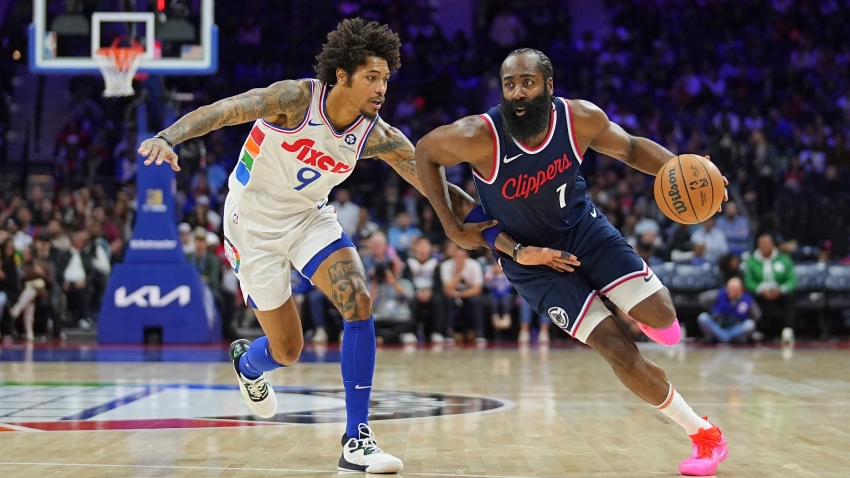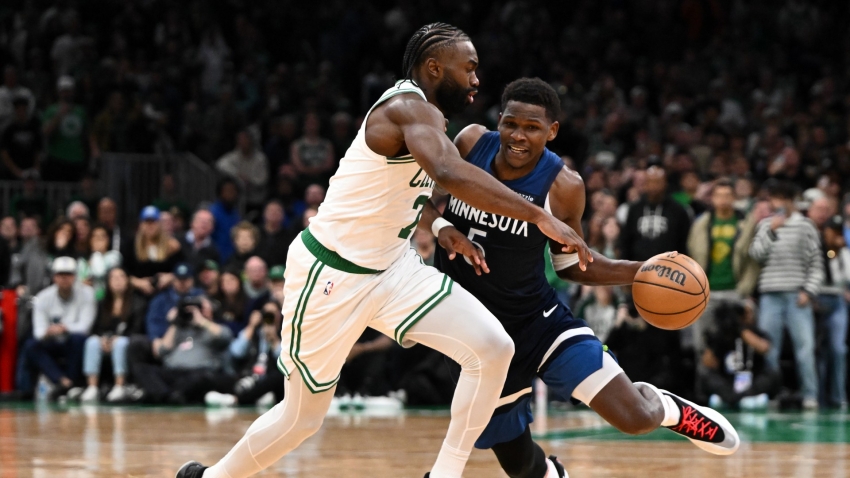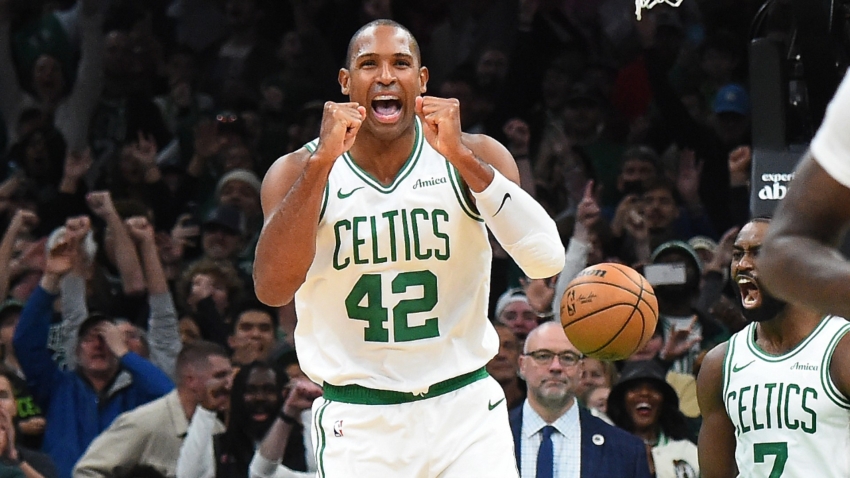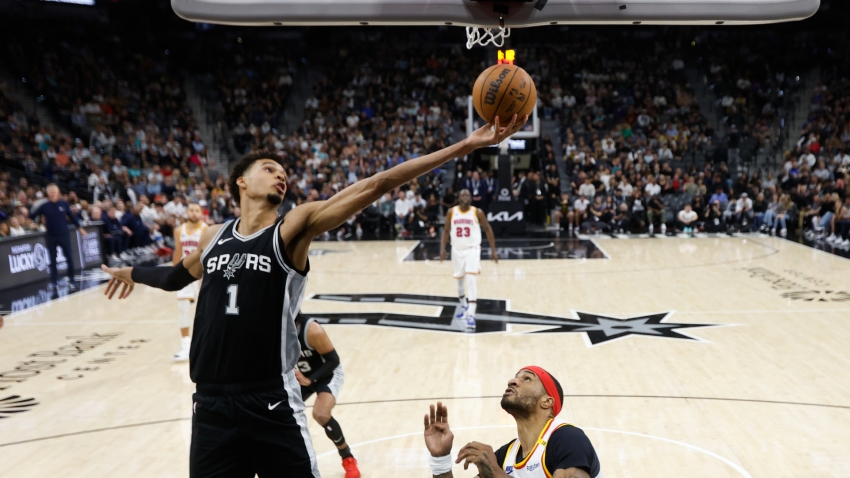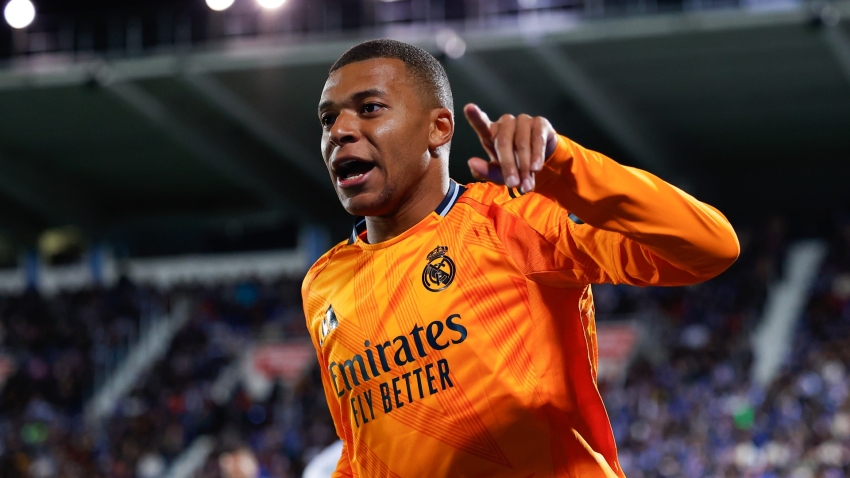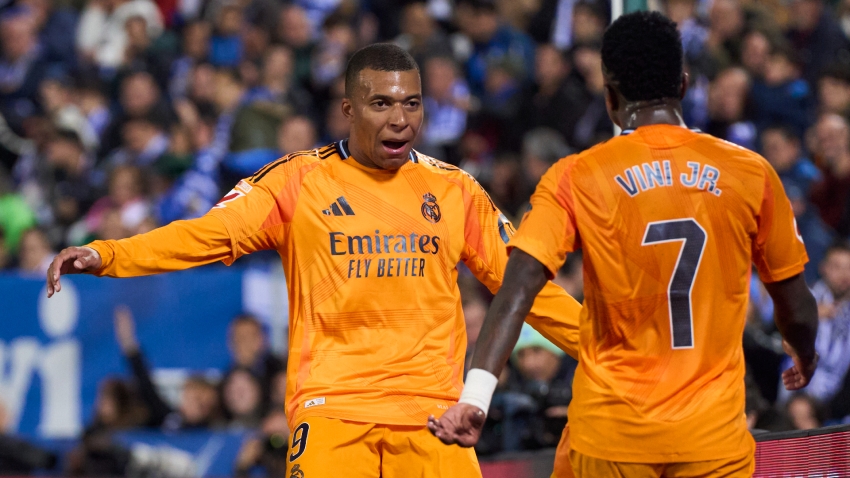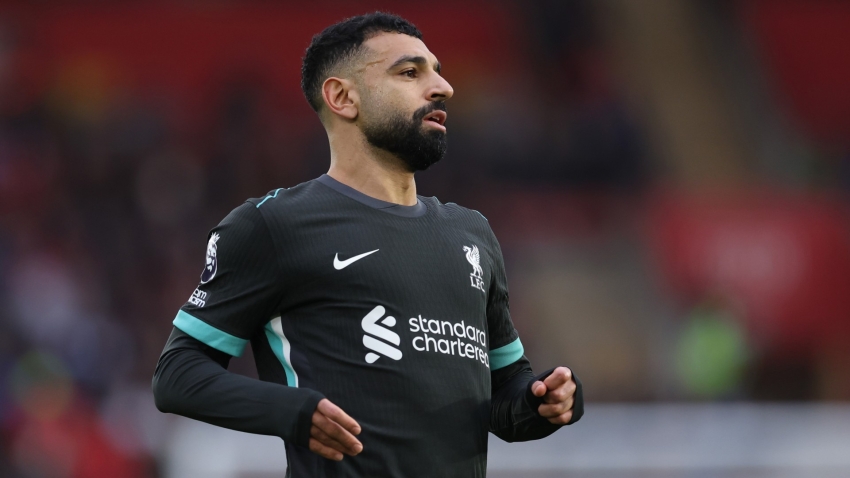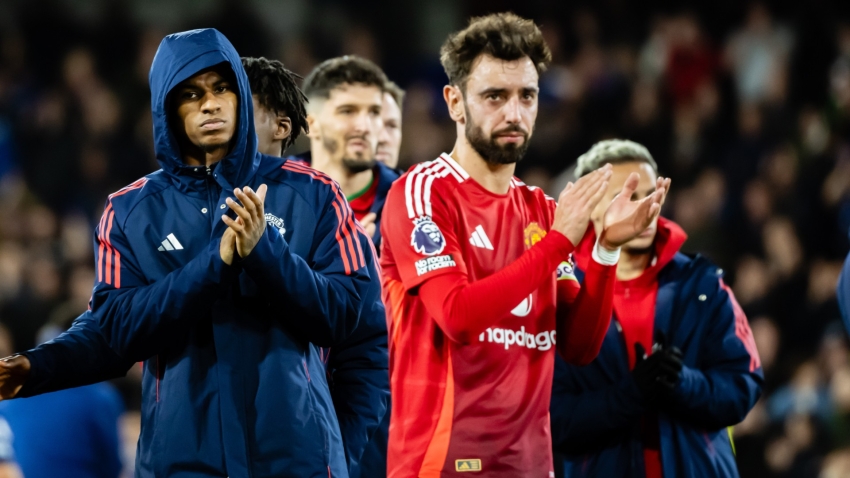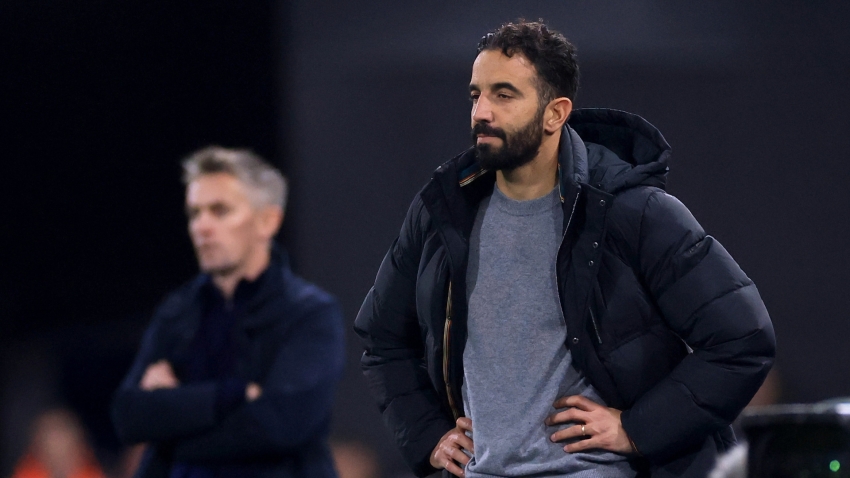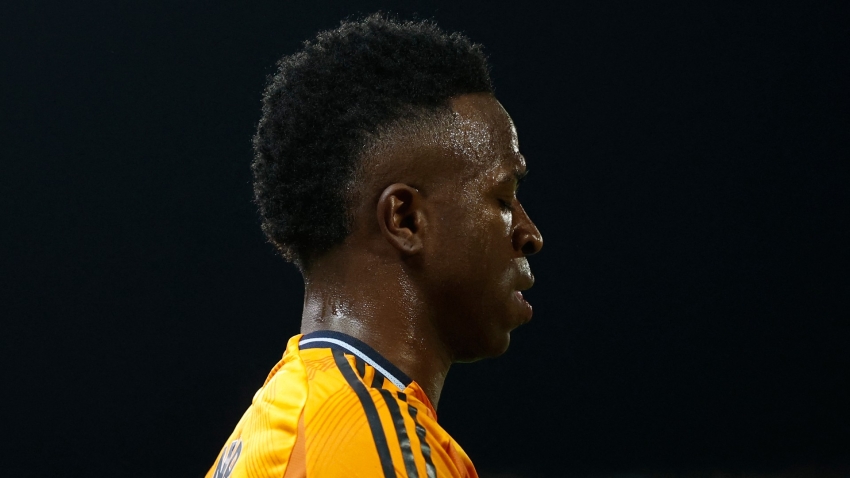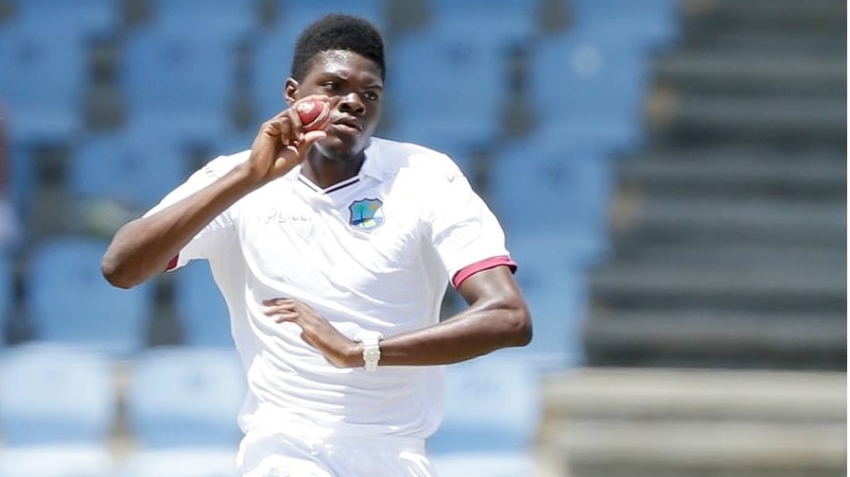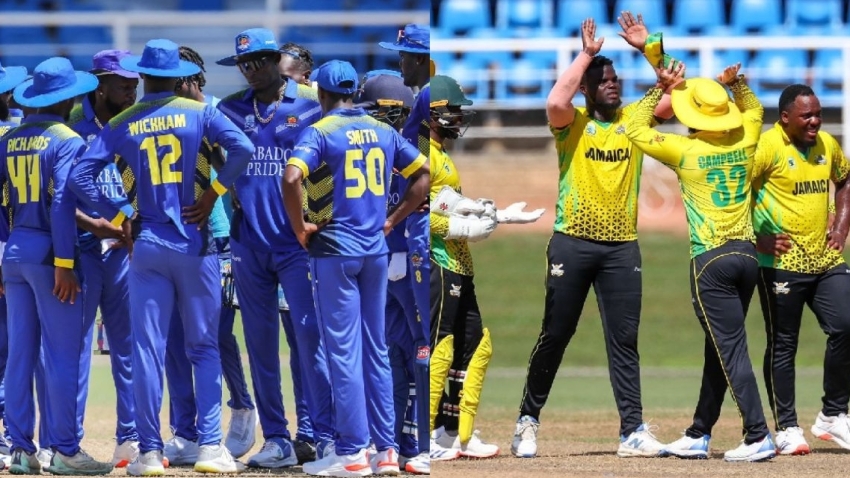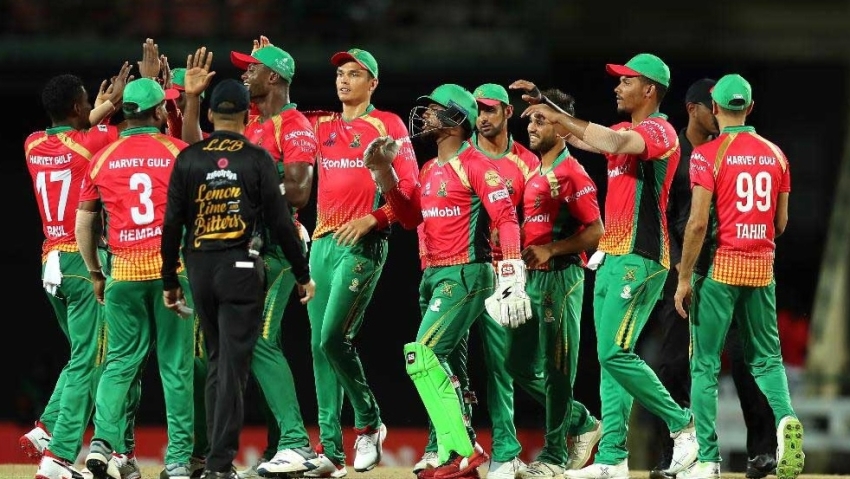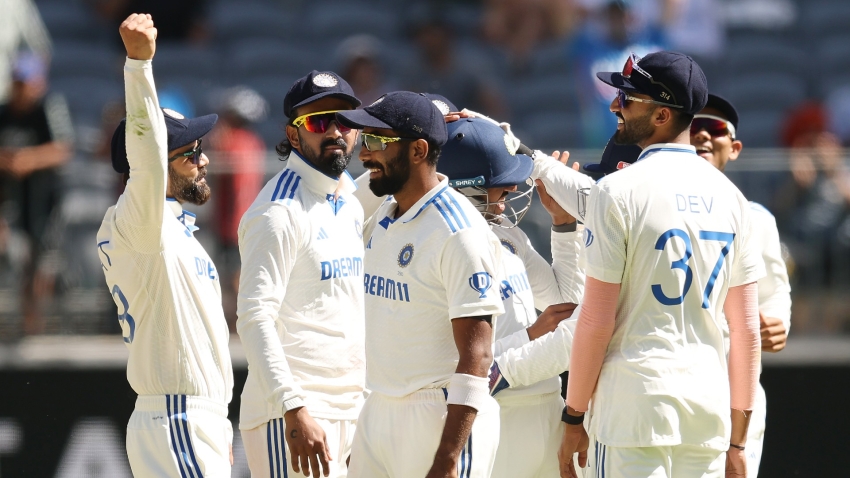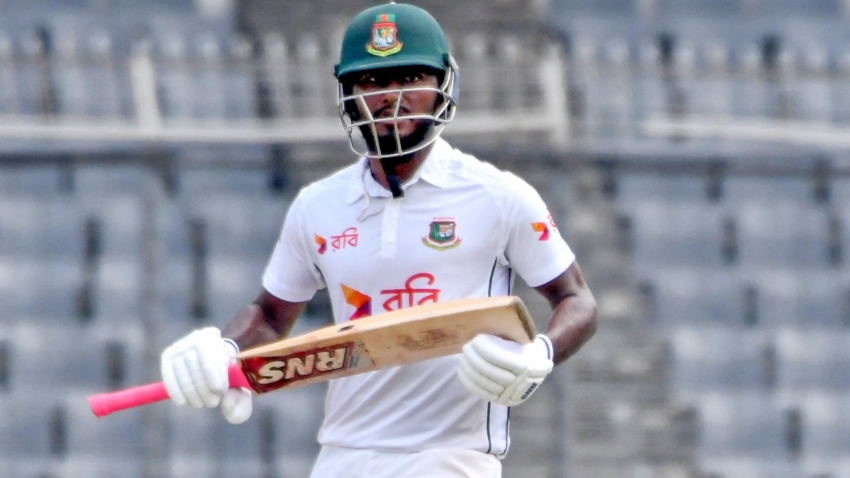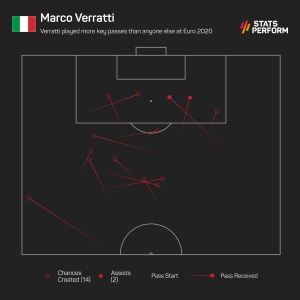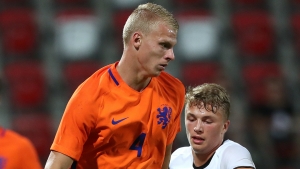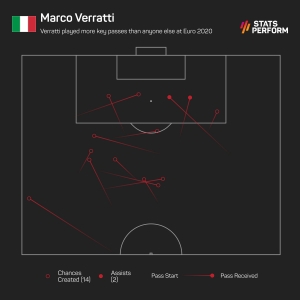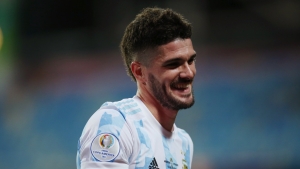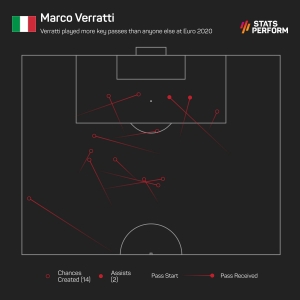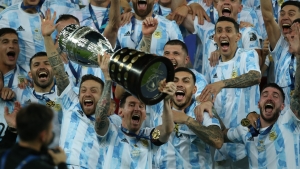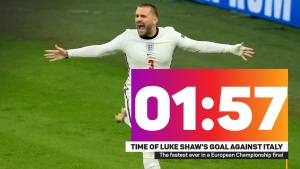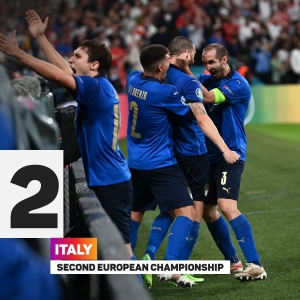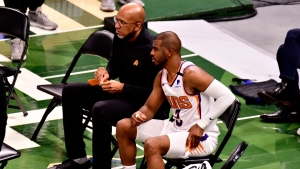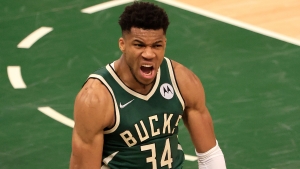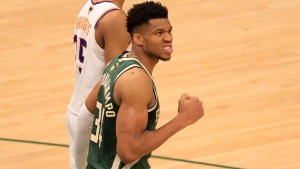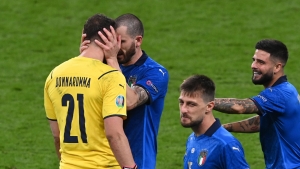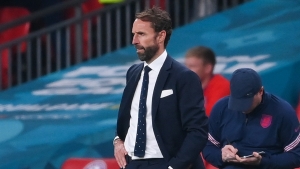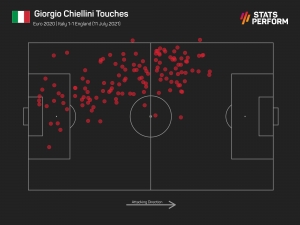Having been scrapped last year due to the disruption caused by the pandemic, the Ballon d'Or returns in 2021.
With Euro 2020 and the Copa America rescheduled for this year, the stars of Europe and South America had the chance to use those tournaments as a springboard towards claiming the game's top individual prize.
Italy and Argentina lifted the respective trophies at the weekend, with the Azzurri beating England in a penalty shoot-out and La Albiceleste seeing off bitter rivals Brazil at the Maracana to win the Copa for the first time since 1993.
Stats Perform has looked at 13 of the leading candidates to feature at either tournament to determine how their chances look heading into the new season.
Jorginho
Before Euro 2020, N'Golo Kante was the Chelsea midfielder seen to be within the best shot of scooping individual honours at the end of 2021, but a month on it's Jorginho who is the European champion at club and international level.
While he has perhaps been underappreciated or misunderstood at times with Chelsea, perhaps supporters will see him in a new light after playing a vital role in Italy's success as their deep-lying playmaker.
Robert Lewandowski
It's widely accepted that, had the award been handed out last year, it would have gone to Robert Lewandowksi, the man whose 55 goals in 47 games delivered Bayern the treble.
How do you follow that? Well, he scored 41 times in the Bundesliga alone in 2020-21, breaking Gerd Muller's 49-year-old single-season record. Lewandowski's Ballon d'Or hopes arguably aren't any worse now than before the Euros as no one will have expected Paulo Sousa's men to make much of an impact. He got three goals in as many games and was only out-scored by six players, which is a solid achievement.
Marco Verratti
Had he not been injured for the first two games of Euro 2020, there's every possibility it would have been Verratti being crowned as player of the tournament, with the Paris Saint-Germain star arguably the player who embodies the qualities of Roberto Mancini's transformed Italy side more than any other.
Not only did he create more chances than anyone else at Euro 2020 (14), but averaged more touches (114.5) than anyone, played the fourth-most passes (87.1) and ranked third for tackles (four) per 90 minutes among all players to have featured for at least 125 minutes. His all-action excellence set the tone for the Azzurri's vibrant and, ultimately, successful football.
N'Golo Kante
Kante inspired Chelsea to Champions League glory, named man of the match in both legs of the semi-final versus Real Madrid and the final against Manchester City.
But France's last-16 elimination by Switzerland will have done little to boost his chances, with Paul Pogba rather than Kante the standout figure for Les Bleus. While a nomination is almost a certainty, taking the gong home now looks beyond the all-action midfielder.
Kevin De Bruyne
A second successive PFA Players' Player of the Year award for Kevin De Bruyne came after another standout season for Manchester City in which he won the Premier League and EFL Cup.
His exceptional quality was further underlined by the fact only Verratti created more chances than him over the course of the tournament, an impressive feat given he started the tournament late due to injury and then had to play through another fitness issue in Belgium's final match, but that's unlikely to be enough to earn him the award.
Gianluigi Donnarumma
Generally, the player considered to be the best at a major international competition has a pretty good chance of winning further accolades, so in that case Donnarumma may have a reasonable opportunity after UEFA crowned him Euro 2020's Player of the Tournament.
Statistically there were numerous goalkeepers who were more important than him to their respective teams given he technically didn't prevent any goals according to Opta's xGOT metric – Tomas Vaclik's prevented a tournament-high 2.5. Nevertheless, Donnarumma wasn't guilty of any drops or errors that led to shots, and made crucial saves across two penalty shoot-outs, including a couple in the final.
Harry Kane
Another star performer in 2020-21 to end the season empty-handed, Harry Kane finished top for goals (23) and assists (14) in the Premier League despite Tottenham finishing seventh.
A slow start to Euro 2020 followed, although Kane scored four times in the knockout phase as he played a key role in England's journey to the final. But when it mattered most he failed to have a single touch in the Italy penalty area. A talismanic performance in the showpiece may have put him firmly in the running, but it's difficult to see him being a major contender now.
Romelu Lukaku
The best player in Serie A as Inter ended an 11-year wait to win the title, Romelu Lukaku enjoyed the best season of his career, with 41 direct goal involvements in 44 appearances.
He certainly cannot be accused of failing to deliver for Belgium given he scored four times, but they came up short against Italy in the quarter-finals, with a partially injured De Bruyne unable to truly weave his magic. Lukaku's influence upon Inter shouldn't be overlooked, but the achievements of others on the international stage may overshadow his own.
Lionel Messi
The winner of the previous award in 2019 – the sixth of his astonishing career – Lionel Messi amazingly plundered 28 goals and had nine assists for Barcelona from January 1 onwards.
It wasn't enough to win Barca the LaLiga title, but it did put him right in the mix and he followed that up with a starring role in Argentina's Copa triumph, the first senior international trophy of his career. Given his lack of success with La Albiceleste was arguably the final barrier to clear in his career, a Ballon d'Or will surely follow later this year as he led Lionel Scaloni's men with four goals (joint-most) and five assists (the most).
Kylian Mbappe
Paris Saint-Germain lost their Ligue 1 title to Lille and could not reach back-to-back Champions League finals, which seems incredible given Kylian Mbappe managed 42 goals and 11 assists in just 47 appearances.
Departing Bayern Munich boss Hansi Flick this year said there was no question Mbappe would win the Ballon d'Or one day, but it probably won't be in 2021. He was one of the biggest disappointments at Euro 2020, failing to score once despite his chances having an accumulative xG value of 2.02 – that under-performance was second-worst to Gerard Moreno (3.32).
Neymar
Even Neymar would admit he only had an outside chance of winning this year's Ballon d'Or ahead of the Copa America, his 17 goals and eight assists in 2020-21 a modest return for the world's most expensive footballer.
While his performances with Brazil would see him included in most people's team of the tournament, he wasn't dependable in front of goal, his one non-penalty strike coming from 5.3 xG, an under-performance unmatched by anyone in the tournament. He'll have to wait a bit longer for the prize he supposedly craves above all others.
Cristiano Ronaldo
Juventus may have lost their grip on Serie A, but Cristiano Ronaldo still finished as top goalscorer (with 29), and they won the Supercoppa Italiana and Coppa Italia.
He definitely didn't do his chances any harm as he won the Golden Boot for most goals (five) – beating Patrik Schick by virtue of having more assists – after becoming the Euros' all-time leading scorer (11) and levelling Ali Daei's world-record haul of 109 international goals, but Portugal's failure to get beyond the last 16 won't help.
Luis Suarez
Discarded by Barcelona for being past his usefulness, Luis Suarez responded with 21 goals in 32 games to propel Atletico Madrid to a first league title since 2013-14.
But he could only muster one goal at the Copa America as he and Uruguay had a minimal impact, meaning it'll take something special for Suarez to be a major candidate at the end of the year.


